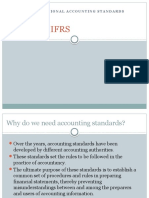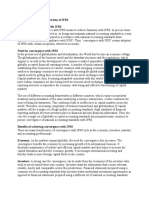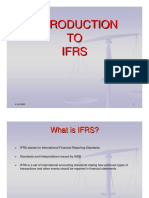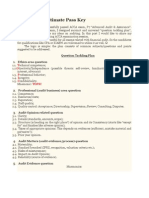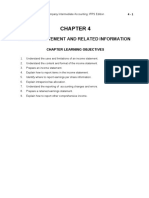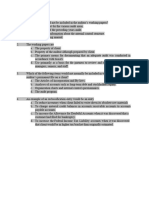GAAP
Generally Accepted Accounting Principles (GAAP) is a term used to refer to the standard framework of guidelines for financial accounting used in any given jurisdiction. Generally known as Accounting Standards. GAAP includes:
standards, conventions, and rules accountants follow in recording and summarizing transactions, and in the preparation of financial statements
�Accounting Principles
CONCEPTS
Business Entity Concept Money Measurement Concept Going Concern Concept
CONVENTIONS
Full Disclosure Consistency Prudence (Conservatism)
Principles derive from tradition. Accounting Period Concept Materiality Our commonly used principles are defined in the Cost Concept following Concept two categories : Dual Aspect
Realization Concept
Matching Concept Accrual Concept Objectivity Concept
�Why GAAP should be used ?
Defines and directs the system of recording transactions Helps in maintaining credibility with stakeholders and creditors. Brings comparability and uniformity Limit the area of authority of accountants Helps in predicting company future growth aspects and cash flows
�Limitations
Allows many alternatives for the treatment of same items. Different accounting needs depending on the nature of industry Does not always reflect reality In the era of globalization, trading countries have different accounting systems. Thus, International Accounting Standards came into existence
�Existing International Accounting Systems
�Class
Subclass
Government, economics
Family
Species
Sweden Japan Germany
Macro-uniform
Continental; government; tax, legal
Law-based
Spain Belgium Tax-based France
Developed Western Countries
U.S. Influence
Italy Canada U.S. Business Practice; Pragmatic, British origin
U.K. Influence
Ireland U.K. N.Z. Australia
Micro-based
Business economics theory
C L A S S I F I C A T I O N
Netherlands
�Accounting Values
Professionalism v/s Statutory control Uniformity v/s Flexibility Conservatism v/s Optimism Secrecy v/s Transparency
�STATUTORY CONTROL
Less developed Latin Less Developed Asian
Near Eastern Japan
Asian- colonial FLEXIBILITY Nordic
African
UNIFORMITY
Germanic
More developed Latin
Anglo - American
PROFESSIONALISM
�SECRECY
Less developed Latin
Germanic
Less Developed Asian
Near Eastern Japan
More developed Latin CONSERVATISM
African OPTIMISM Asian- colonial Nordic
Anglo - American
TRANSPARENCY
�International Financial Reporting Standards
Previously known as International Accounting Standards IFRS (name) was adopted in 2001. Principles-based Standards, Interpretations and the Framework adopted by the International Accounting Standards Board (IASB). IFRS financial statements consist of a Statement of Financial Position a Statement of Comprehensive Income a Statement of Changes in Equity (SOCE) a Cash Flow Statement or Statement of Cash Flows notes, including a summary of the significant accounting policies
�IFRS World Presence
More than 113 countries around the world, including all of Europe, currently require or permit IFRS reporting. Includes European Union, Hong Kong, Australia, Malaysia, Pakistan, GCC countries, Russia, South Africa, Singapore, Turkey and many more. Many other countries are under the process of planning the shift as well. United States is also gearing towards IFRS.
�IFRS and INDIA
The next revolution after the software revolution will be in the world of accountancy with the convergence of IFRS where we would be contributing the best and largest number of young Accountants.
Salman Khurshid, Union Minister for Corporate Affairs
Institute of Chartered Accountants of India (ICAI) has announced that IFRS will be mandatory in India for financial statements for the periods beginning on or after 1 April 2011.
This will be done by revising existing accounting standards to make them compatible with IFRS.
Reserve Bank of India has stated that financial statements of banks need to be IFRS-compliant for periods beginning on or after 1 April 2011...
�Need for IFRS
Level of Confidence:
The key benefit will be a common accounting system that is perceived as stable, transparent, and fair to investors across the world, whether local or foreign.
Risk Evaluation:
IFRS will eliminate barriers to cross-border listings and will be beneficial for investors who generally ascribe a risk premium if the underlying financial information is not prepared in accordance with international standards.
Merger & Takeover Activity:
Cross-border mergers and acquisitions will get a boost by making it easier for the parties involved in as far as redrawing the financial statements is concerned.
Investments:
Foreign investors will be attracted to economies where IFRS-compliant financial statements are the norm.
�INDIAN GAAP and IFRS
Presentation of statement of comprehensive income is not required by Indian GAAP. The statement of equity is not prepared under Indian GAAP Classification of financial liabilities is undefined
Under refinancing arrangements Upon violation of covenants
Presentation of any extraordinary items is prohibited in IFRS IFRS requires disclosure of critical judgements made by management in applying accounting policies.
�INDIAN GAAP and IFRS
Mandatory disclosures for estimation uncertainties and managing capital under IFRS Compliance Clause for income taxes related to investments in subsidiaries, branches and associates, joint ventures and for deferred tax business combinations Indian GAAP - Deferred tax assets are to be disclosed on the face of the balance sheet separately after the head Investments. Deferred tax liabilities are to be disclosed after the head Unsecured Loans. However, under IFRS, they are always classified as non-current. IFRS Reconciliation of income tax calculations w.r.t. profits and disclosure of tax holidays and expiry.
�Phases of Implementation Strategy
Date of Implementation April 1, 2011 Companies Covered Non-BFSI companies that satisfy any of the following criteria: a) Part of NSE Nifty 50 b) Part of BSE Sensex 30 c) Shares listed outside India d) Net worth over INR 1000 crores
April 1, 2012
April 1, 2013
Insurance companies
a) Companies with net worth over INR 500 crores b) Banks and NBFCs Listed companies with net worth less than INR 500 crores
April 1, 2014
















